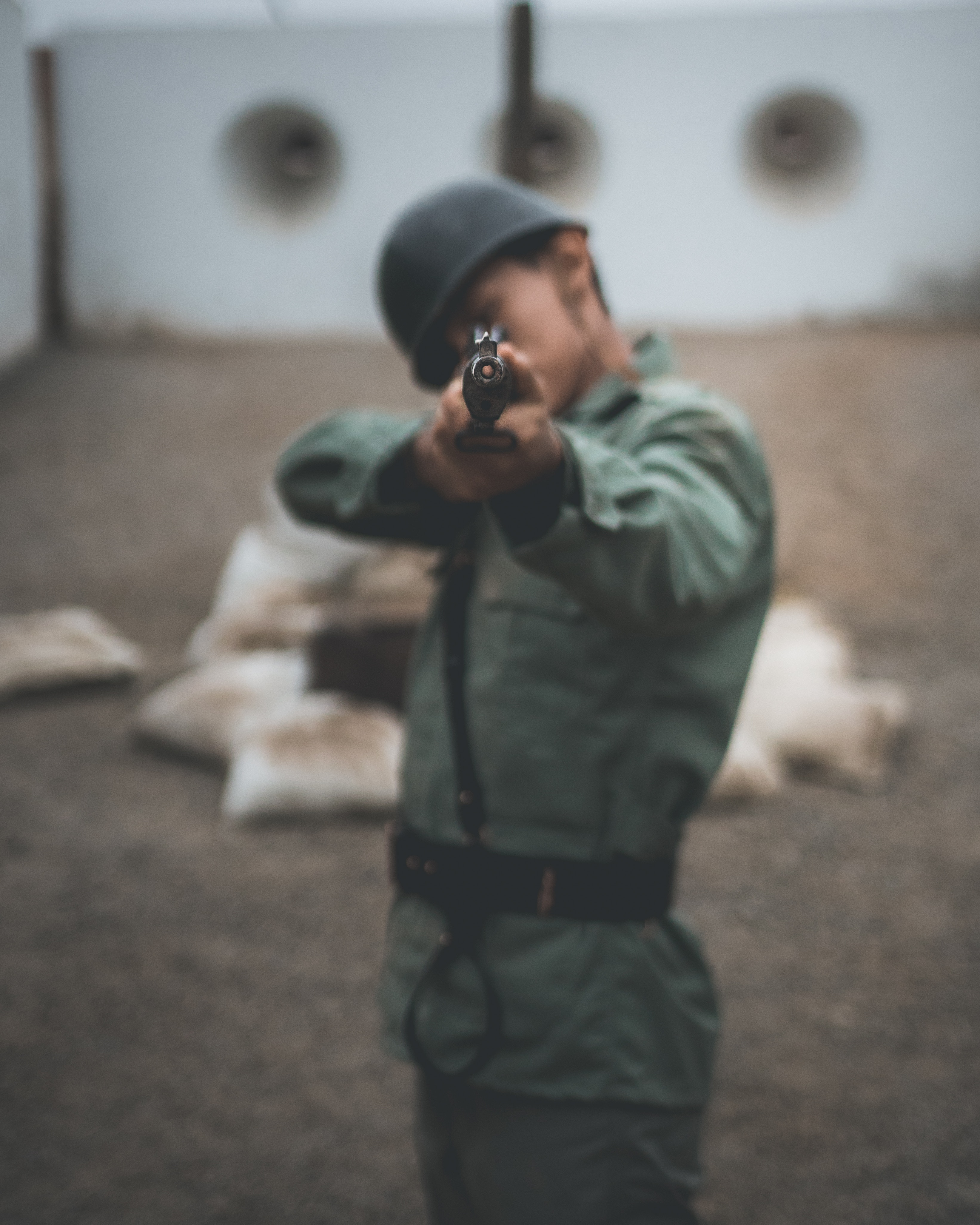On Christmas Eve 1914, in the middle of the blood and horror that was the first World War, there occurred an unplanned truce.
It began in the darkness on Christmas Eve night, when the men began singing Christmas carols. Voices raising in the cold night, sparse and few at first but growing ever stronger. The soldiers of both sides sang together in the dark, words intermingling both in English and in German, but all with the same meaning.
On that night and the following day, the men on both sides stopped fighting, and instead of meeting in war they joined in celebration of the holiday they all observed and held sacred. Men who had pointed guns at each other the day before left their trenches to exchange food, show each other pictures of their loved ones, trade stories. There was even a game of baseball.
It could rightfully be called a Christmas miracle. Men dead set on killing each other and afraid for their lives laid down their weapons and celebrated the joint holiday as one.
How can such a thing occur in the middle of war?
It had been suggested by the Pope that a cease-fire be called to observe the holiday. The governments on both sides of the war refused to pause the fighting, but the soldiers established their own unofficial truce.
Death was left empty-handed. For a fleeting moment, the world appeared as if at peace — and soldier’s hearts were full.
But beyond the surface-level miracle, the implications of such an occurrence run much deeper.
Many of the soldiers remember it as being humanizing. The men on the other side of the battlefield became, not the barbaric monsters that they’d been told to expect, but instead gentle and compassionate humans. It made the soldiers rethink their perception of their enemy — and it made some question the fighting itself.
When telling the story of the 1914 Truce, people are filled with positivity, rejoicing. It’s presented as a story that is inherently good — and for the first half, there is. But the story has an ugly side to it — for, when the holiday was over, the men went back to war.
Men who had sang together in harmony, shook each other’s hands, seen each other as humans and fellow Christians, were now raising guns against each other and pulling the trigger. Blood was once more spilled on already-sodden dirt. Bodies were emptied of blood and organs in a brutal fashion. Soldiers were maimed, and young men died.
How did these men go back to war, after having shared food and song with the men in the other trenches? How, after sharing such a deep experience, can you aim the point of a rifle at those men across from you and shoot with the intent of killing? How can you spill the blood that warmed alongside your own with the power of such a sacred moment?
What must be the psychology that goes on to allow men to take such actions?
And what must be the psychological ramifications of such an act?
Were they so hardened and ruined against war that it didn’t matter to them? The soldier in their sights was just a body, after all, on the wrong side of the field and wearing the wrong coat and therefore there for shooting. Or had the humanity touched them, so that there was another war going on inside each man’s heart when he once more took up his rifle? In spite of the pain that must have caused, one must hope desperately that there was — but even that is small comfort, for the men still chose in the end evil over goodness, still pulled the triggers.
What does this say about humanity? Is this a net positive or a net negative story? It has the deep power of both sides of the coin — a trend that crops up again and again in war itself. War brings out the best and the worst in us, lives and breeds in both extremes.
As Sebastian Junger says in his book WAR, “The core psychological experiences of war are so primal and unadulterated that they eclipse subtler feelings, like sorrow or remorse, that can gut you quietly for years.” This acknowledges that the men may have paid for what they did for many years — but they were still capable of doing it.
War proves that men are capable both of great good and of great evil.
The men doubted the validity of the war after that night. They doubted the soldiers they were fighting were the inhuman monsters they’d been made out to be. They wondered if the war itself was equally as meaningless. But these questions weren’t enough to stop the war. It continued, for three more long years, cut millions more lives short.
If the men weren’t psychologically ruined already by war, they must have been marred completely by the acts of horror that came in the days after Christmas — the slaughtering of the men they’d grown warm beside and called, for a night, not enemy but rather ‘friend.’
It has been speculated that, had the truce lasted, it would have ended the war. If both sides had refused to fight, Europe would not have been reshaped by the years that followed. It has been speculated that Stalin’s communist Russia would never have risen, Hitler would not have come into power, and many of the greatest horrors of the 20th century would have been avoided.
But a night of shared observation of a deeply powerful holiday wasn’t enough.
